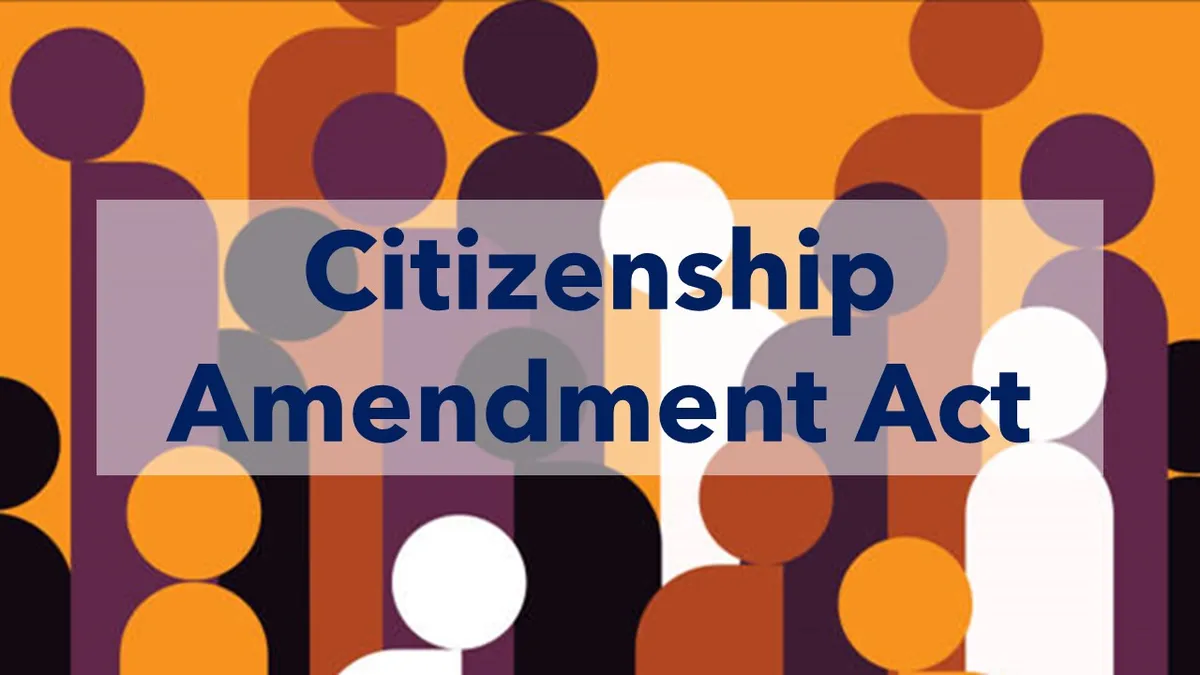NEW DELHI
On a sweltering Saturday morning, plastic chairs are neatly arranged in a large hall at the Indraprastha post office in central Delhi. Soon, a group of Pakistani Hindus, mostly related, occupy these chairs, waiting for their turn to be interviewed by government officials. They have applied for Indian citizenship under the Citizenship (Amendment) Act (CAA), 2019.
A New Approach to Citizenship
The government has introduced a novel system involving officials from the Census, postal department, railways, and National Informatics Centre (NIC) to scrutinize and verify documents submitted online for citizenship under CAA. This empowered committee is the final authority for granting citizenship.
The Citizenship (Amendment) Act (CAA) was introduced in India in December 2019. The Act aims to provide a pathway to Indian citizenship for non-Muslim migrants from three neighboring countries—Afghanistan, Bangladesh, and Pakistan—who faced religious persecution and entered India on or before December 31, 2014. Specifically, the CAA applies to individuals from six religious communities: Hindus, Sikhs, Buddhists, Jains, Parsis, and Christians. By amending the Citizenship Act of 1955, the CAA reduces the residency requirement for these migrants from 11 years to 5 years, streamlining the process for them to gain Indian citizenship. The Act has sparked significant debate and protests, particularly regarding its exclusion of Muslims and its implications for secularism in India.
A Glimpse into the Process
Kanwar Lal, who came to India on a pilgrimage visa in June 2014 with his family, is one of the applicants. After the CAA rules were notified on March 11, paving the way for the legislation passed in December 2019, Mr. Lal applied for citizenship online on April 27. He received an SMS to attend an interview at the Indraprastha Post Office.
“I had all my documents, including an eligibility certificate from a local priest. The interview lasted 40 minutes, but my application was rejected due to a missing notarized affidavit. I need to apply again,” Lal explained.
The Reach of CAA
While the CAA aims to help undocumented migrants, the rules mandate several documents, including those issued by authorities in Pakistan, Afghanistan, and Bangladesh. Applications are primarily coming from regions with a high concentration of Pakistani Hindus like Rajasthan, Gujarat, Haryana, and Delhi.
In Majnu Ka Tila, North Delhi, 14 people were granted citizenship on May 15. Amar Nath Advani, who sells mobile phone covers, was at the post office with his family. “The officials asked detailed questions about our history and intentions. The CAA has simplified the process compared to the Citizenship Act, 1955, which involved extensive paperwork,” Advani said.
Streamlining the Process
The government’s strategy involves using the extensive infrastructure of the postal and railway departments for document verification. An empowered committee under the Directorate of Census is the final decision-making body, and the Intelligence Bureau handles character and security verification.
Bypassing State Involvement
To sidestep opposition from states like West Bengal, Tamil Nadu, and Kerala, the Union Ministry of Home Affairs (MHA) has formed committees led by Census and postal officials, minimizing state government involvement. Citizenship, under the Union List of the Constitution, allows this federal maneuvering.
The Road Ahead
The CAA facilitates citizenship for undocumented migrants from six non-Muslim communities from Afghanistan, Bangladesh, and Pakistan who entered India before December 31, 2014. It reduces the required residency period from 11 years to five years.
This new process aims to expedite citizenship for eligible migrants, ensuring they are not treated as illegal under the Passport (Entry into India) Act, 1920, and the Foreigners Act, 1946. Despite the complexities, applicants like Mr. Lal and Mr. Advani remain hopeful that the streamlined process will grant them a new identity and a secure future in India.

2 Comments
I am truly thankful to the owner of this web site who has shared this fantastic piece of writing at at this place.
Hi there to all, for the reason that I am genuinely keen of reading this website’s post to be updated on a regular basis. It carries pleasant stuff.